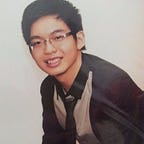- Startups are omnipresent. According to AngelList, the total number of startups based in San Francisco are amount to 17,233. Such startup boom resulted in the attraction for thousands of investors, around 21,649, and plenty of engineering jobs, from software to hardware.
- Startups in San Francisco are strenuously competing in most promising fields of the future: Artificial Intelligence, Augmented Reality, Virtual Reality, Data Science, Machine Learning, and Self-driving cars. In recent years, hundreds of talents and experts in those aforementioned fields are recruited to add extra power in the battle with established technology giants such as Microsoft and Samsung.
- The more startups emerge, the higher the probability (around 80% according to my experience) you will bump into cofounders on the streets, restaurants, bus stations, co-working space, and coffee shops. Whenever it happens, I am “invited” to one’s vision of the future, to one’s plausible solutions for world issues, to one’s imagination of how technology will enhance the world. Co-founders are always investing their time and efforts into polishing pitch deck, attending certain conference, building impressive demos, in the hopes of attracting venture capitalists, angel investors, etc.
- An entire supporting ecosystem arose as more and more startups were established. One of the most rapid and efficient way to build a startup was participate in startup accelerators or incubators. The benefits were excellent mentorship, free co-working space, and, most importantly, resources as early stage investments. Without a doubt, San Francisco housed the nation’s most prestigious accelerating programs that became the dream of any early stage startups. Y Combinator, Rocketspace, 500 Startups Accelerator, Greenstart, I/O Ventures, The Founder Institute took top rankings in supporting promising startups.
- One of the most crucial parts of San Francisco tech culture was the existence of hackerhouse or hackerspace. These terms might sound foreign for non-locals, but they were the must-visit place for technology hobbyists, engineers, hackers, makers, and college students with interests in STEM. Few popular ones included Noisebridge, TechShop, RockIT Colabs, and Hacker Dojo. They formed a welcoming community by providing free co-working space, workshops, hackathons, and meetups (and free wifi of course). Most importantly, they served as a convergent point where profound conversations and exchanging ideas happened between the passionate. I speculated that these hackerspace or hackerhouse was the cradle of nowadays startups.
San Francisco
